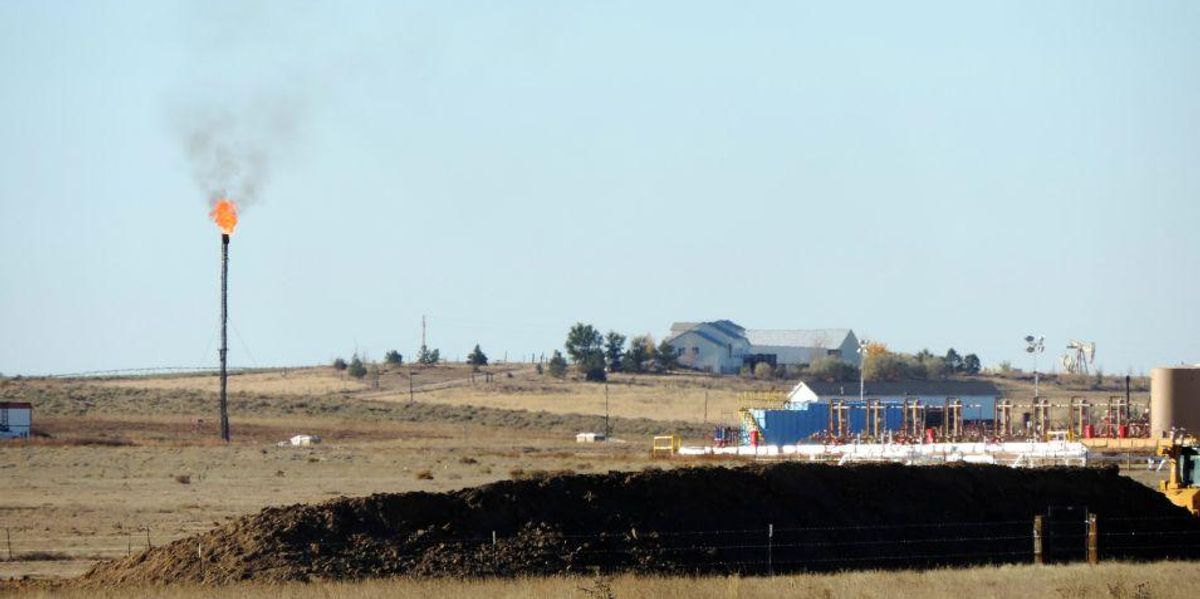
Driven primarily by human activities including fossil fuel extraction, methane levels in the atmosphere had their fourth-largest annual increase in 2022, the National Oceanic and Atmospheric Administration reported Thursday.
Scientists detected 1,911.9 parts per billion (ppb) of methane in the atmosphere last year, indicating a rise of 14 ppb. The level rose by 17.75 ppb in 2021 and 15.20 ppb the previous year.
Benjamin Poulter, a scientist with the National Aeronautics and Space Administration (NASA), told the Associated Press that researchers are "confident that over half of the methane emissions are coming from human activities like oil and gas extraction, agriculture, waste management, and landfills."
Methane can trap about 87 times more heat than carbon dioxide in its first two decades in the atmosphere.
Responding to NOAA's report on atmospheric levels of carbon dioxide, methane, and nitrous oxide, Sierra Club campaigner Jens Wieting said that "allowing any new fossil fuel projects, more fracking, and [liquefied natural gas] is an unspeakable climate crime."
About 26% of the planetary heating that is attributed to human activity is caused by methane emissions from sources such as landfills, livestock, and oil and gas extraction, Duke University professor Drew Shindell told the AP Thursday.
Experts also warn that fossil fuel emissions have led to a feedback loop in which the planet itself is releasing more methane due to hotter conditions.
"If this rapid rise is wetlands and natural systems responding to climate change, then that's very frightening because we can't do much to stop it," Shindell told the AP. "If methane leaks from the fossil fuels sector, then we can make regulations. But we can't make regulations on what swamps do."
Policymakers must take action to cut the methane emissions that can be reduced, said NOAA.
"The time is now," said NOAA Administrator Rick Spinrad in a statement, "to address greenhouse gas pollution and to lower human-caused emissions as we continue to build toward a climate-ready nation."
This content originally appeared on Common Dreams and was authored by Julia Conley.
Julia Conley | Radio Free (2023-04-07T17:53:13+00:00) Potent Heat-Trapping Methane Emissions Saw 4th-Largest Annual Increase in 2022: NOAA. Retrieved from https://www.radiofree.org/2023/04/07/potent-heat-trapping-methane-emissions-saw-4th-largest-annual-increase-in-2022-noaa/
Please log in to upload a file.
There are no updates yet.
Click the Upload button above to add an update.